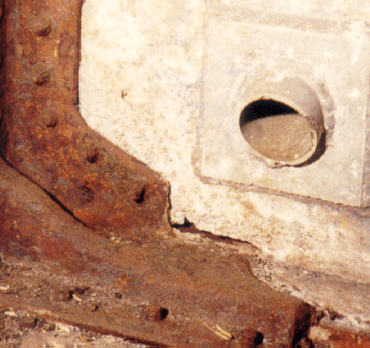What Does
Galvanic Corrosion Mean?
Galvanic corrosion refers to corrosion damage that occurs when two different metals are in electrical contact in an electrolyte, where the more noble metal is protected and the more active metal tends to corrode.
For galvanic corrosion to occur, three conditions must all be present:
- Electrochemically dissimilar metals must be present.
- Metals must be in electrical contact.
- Metals must be exposed to an electrolyte.
Galvanic corrosion may also be known as bimetallic corrosion and dissimilar metal corrosion.
Corrosionpedia Explains Galvanic Corrosion
The following are some of the main factors influencing galvanic corrosion rates:
- Potential difference between materials.
- Cathode efficiency.
- Surface areas of connected materials (area ratio).
- Electrical resistance of the connection between the materials and of the electrolyte.
Metals and metal alloys all possess different electrode potentials, a relative measure of a metal's tendency to become active in a given electrolyte. The more active or less noble a metal is, the more likely it will form an anode in an electrolytic environment. While the more noble a metal is, the more likely it will form a cathode when in the same environment.
The electrolyte acts as a conduit for ion migration, moving metal ions from the anode to the cathode. The anode metal, as a result, corrodes more quickly than it otherwise would, while the cathode metal corrodes more slowly and, in some cases, may not corrode at all.
The galvanic series in seawater lists the common metals in order from the most anodic to most cathodic (noble). The further apart the metals are in this series, the greater the corrosion difference and speed between the two.
For example, zinc will corrode in saltwater extremely quickly when in contact with platinum, but 304 stainless steel in contact with 316 stainless steel will have little effect on each other.
Here's an example of galvanic corrosion between carbon steel and aluminum in sea water:
 By Webcorr – Own work, CC BY-SA 3.0
By Webcorr – Own work, CC BY-SA 3.0